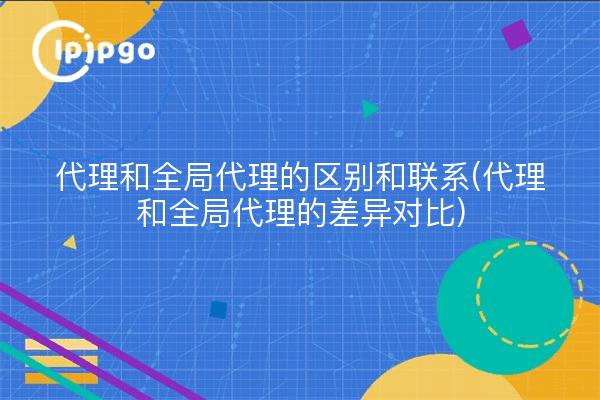
Differences and connections between proxies and global proxies
In the Internet domain, proxies and global proxies are two common concepts that play an important role in network communication. Although they both involve communicating on behalf of other devices or services, they have different characteristics in terms of specific functions and usage scenarios.
A proxy is an intermediate service that communicates with a server on behalf of a client. When a client sends a request, the proxy receives it and forwards it to the destination server, and then returns the server's response to the client. The proxy can modify or filter the request and response to achieve control and acceleration of network communications.
Global proxy, on the other hand, is a system-level proxy setting that acts on the entire network communication environment. By setting the global proxy, users can route all network traffic to the specified proxy server, thus realizing the proxy service for the whole network.
Comparison of the differences between proxies and global proxies
Functionally, proxies usually forward and process requests for specific requests, while global proxies proxy the entire network traffic. This leads to differences in their usage scenarios and configurations.
For proxies, it is usually applied in scenarios where specific requests need to be controlled or accelerated. For example, Web proxies can cache requests for specific websites to speed up user access; transparent proxies can monitor and filter network traffic to realize the protection of network security. Global proxies, on the other hand, are more often used in scenarios where the entire network environment needs to be accessed through a unified proxy, such as the unified proxy setup for an enterprise's internal network, or proxy access in some special network environments.
In terms of configuration, proxies usually need to be set up in the client or application to enable proxy forwarding of specific requests, while global proxies need to be set up in the operating system or network device to ensure that traffic from the entire network environment passes through the specified proxy server.
In general, proxy and global proxy are both intermediate forwarding services for network communications in terms of implementation, but their functions and usage scenarios are significantly different. Understanding their differences and connections will help you choose the right proxy to improve the efficiency and security of network communication.








